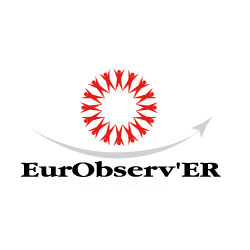Partners
ECN
The Energy research Centre of the Netherlands (ECN) is active within the transition area between fundamental research carried out by universities and the application of knowledge within the market. It is the largest research center in the Netherlands in the field of energy (600 people employed by the end of 2006).
ECN focuses on the knowledge and information required by the government to develop and evaluate policies and to achieve policy objectives in the field of energy, the environment and technological innovation. [5] ECN works together with national and international industry in the development and implementation of products, processes and technologies important for the transition to a sustainable energy system. The multidisciplinary project teams provide consultancy services at the national, European and global level.
IEO
EC BREC Institute of Renewable Energetic Ltd is an independent consultancy company, established in 2001. In EC BREC Ltd, the personal knowledge and experience of experts is used to develop projects connected with renewable energy promotion and implementation in Poland.
EC BREC Ltd provides 22 highly qualified specialists, with sound expert background in renewable energy and sustainable energy problems. Depending on the requirements, the projects are supported by experts working in various fields of utilisation of renewables. For instance, they bring support to the national government in preparation of legal regulations, policies and strategies or promotion of mechanisms and instruments supporting development of RES in the European Union. [6]
RENAC
Since June 2010, RENAC is partner of the EurObserv’ER consortium. The Renewables Academy AG (RENAC), based in Berlin, is one of the leading international providers of education and training in the fields of renewable energy and energy efficiency. Since the founding of RENAC in January 2008, over two thousand participants from more than 100 countries worldwide have benefited from their expertise in the technology, financing, management and market development of renewable energy and energy efficiency. [7]
The rapid growth of the renewable energy and energy efficiency markets has led to increased demand for expertise and qualifications throughout the industry, financial institutions and policy-setting bodies. Through training and professional services, RENAC aims to propagate the necessary know-how for the growth of renewable energy and energy efficiency markets.
IJS
The Jožef Stefan Institute is the leading Slovenian research organisation. It is responsible for a broad spectrum of basic and applied research in the fields of natural sciences and technology. The staff of around 850 specialise in research in physics, chemistry and biochemistry, electronics and information science, nuclear technology, energy utilisation and environmental science. [8]
The Jožef Stefan Institute – Energy Efficiency Centre (JSI/EEC) basic activities are related to efficient energy use, long-term energy planning and the reduction of greenhouse-gas emissions. The Centre is a focal point for the collection and transfer of energy-efficiency technologies to the energy users, the state, the energy-service and equipment providers, and other interested parties. The most significant part of the EEC’s activities is thus the co-operation with state institutions in the preparation of strategic documents and legislation relating to the efficient energy use, energy planning, distributed electricity production and emission trading. But it also continues to be strongly connected, through its consulting and training activities, with industrial companies and other institutions. Its network of contacts extends to the Czech Republic and Croatia. [9]
FS
Frankfurt School of Finance & Management is a leading private Business School and advisory institute in Germany with more than 50 years experience in consulting, qualification, project implementation, and training services. Frankfurt School's mission is to advance national and international business practices through academic research, executive education, and advisory activities. Frankfurt School is a non-profit, limited liability company with almost 400 employees. The International Advisory Services (IAS) department is committed to improve financial markets and to increase access to finance for small enterprises and low-income populations. IAS is structured in seven core competence centres, whereas one is exclusively dedicated to Sustainable Energy Finance. Accordingly, IAS assists financial institutions in developing a business segment for financing of energy efficiency measures and renewable energy investments. Besides strategy and product development, marketing, and adaptation of procedures and reporting, it puts a special focus on capacity building through classroom and on-the-job trainings. Furthermore, Frankfurt School is active in networking for international best practice exchange as well as applied research with regards to financing aspects of climate change mitigation, adaptation, and financial sector involvement.
